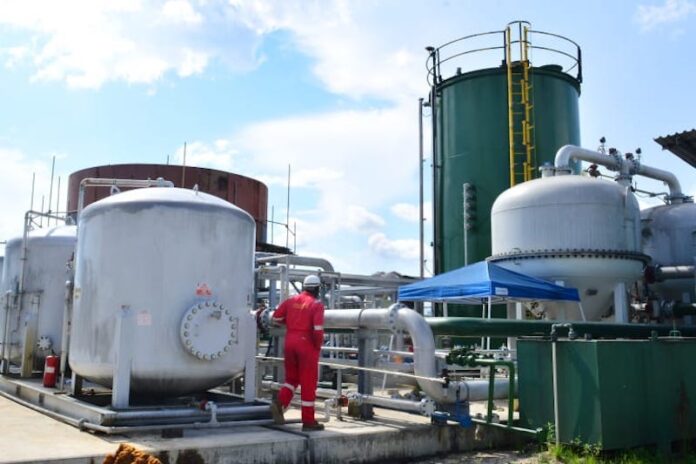*Company’s financing arrangement on course
*Industry data shows FTSA model working, firm targets 120,000bpd in 48 months
CHIGOZIE AMADI
Nigeria’s crude oil production has received a major boost, with Neconde, one of the country’s foremost indigenous independent producers hitting 50,000 barrels per day on Oil Mining Licence (OML) 42 as of May 2025.
With the company’s Financial and Technical Services Agreement (FTSA) solidly in place, industry data obtained by THISDAY showed that Neconde has now steadily increased output in the last 24 months by over 100 per cent.
The data indicated that the implementation of the FTSA solution raised production from an average of 15,000 bpd in 2023 to 25, 000 bpd in 2024 and to 2025 year-to-date of 50,000 bpd and aspiration to exit this year at over 70,000bpd.
Besides, the company is expected to hit 120,000 bpd in the next 48 months, deploying its massive human resource and technical expertise to grow the asset.
THISDAY learnt that the company has mostly been able to increase this output, with its philosophy of excellence in service delivery, fair market price, focus on cost discipline as well as optimisation and elimination of non-value adding processes.
Furthermore, whilst developing and empowering local capacity development as well as working with local communities, the FTSA is enabling the company to put in place the desired governance in terms of processes and procedures.
The arrangement, it was understood, is also ensuring transparency and accountability, direct access to international oilfield services like Shlumberger (SLB) and Haliburton as well Original Equipment Manufacturers (OEMs), a strategic advantage that will help the company achieve its target crude production in the coming years.
The initial aggressive development and intervention campaign successfully executed in 2024 also enabled a second campaign in 2025, with imminent mobilisation workovers and infill drilling to support the production growth aspiration of over 120,000 bpd.
Set to commence in June 2025, its first rig-based production growth programme since the acquisition of the asset by Neconde in 2011, will enable rapid facility upgrades and life extension. Also, the asset is opening up one of the fields that have not been re-entered and produced since acquisition in 2011, Egwa 2 field, with huge oil and gas reserves.
Although before Shell exited, OML 42 had reached a daily production of circa 250,000, however it was dormant by the time Neconde took it over, after community disturbances that led to facility shutdown around 2005/ 2006.
Specifically, in the last few years, the company, according to available information, has built capacity, especially helped by the FTSA model which was activated in 2022, and could do even more with a little encouragement.
Nigeria currently faces several challenges in raising its oil production, a development that has reduced the volume of crude reaching export terminals and has frequently disrupted operations. Underinvestment in upstream infrastructure is also a significant issue which has led to facility integrity degradation, extending downtime and production deferments due to frequent equipment failures and poor maintenance practices.
While revitalising the existing but non-functional gas compression facility, it was learnt that the drilling programme also involves gas developments to support the local gas supplies, eliminate gas flare and improve stakeholder value extraction, as the asset has huge untapped gas reserves. Many oilfields and facilities suffer from neglect, with limited capital expenditure on exploration and maintenance.
But despite the significant bottlenecks, Nigeria has embarked on an ambitious initiative known as ‘Project 1 Million Barrels Per Day’, aiming to significantly boost its crude oil production. This project seeks to elevate daily output from a baseline of approximately 1.46 million barrels in October 2024 to a long-term target of 3 million barrels bpd. It is believed that with some support, firms like Neconde could help achieve this target.
With a new NNPC management team led by Mr Bayo Ojulari in place, with a track record of performance in their previous endeavours in the sector, it is believed that to achieve the targets set by President Bola Tinubu, there may be the need to look inwards.
Tinubu had outlined ambitious targets to revitalise Nigeria’s oil and gas sector and bolster the nation’s economy. The key objectives set for the new NNPC leadership include: Elevating crude oil production, expanding gas output; enhancing refining capacity as well as attracting the right investment to the sector.

























